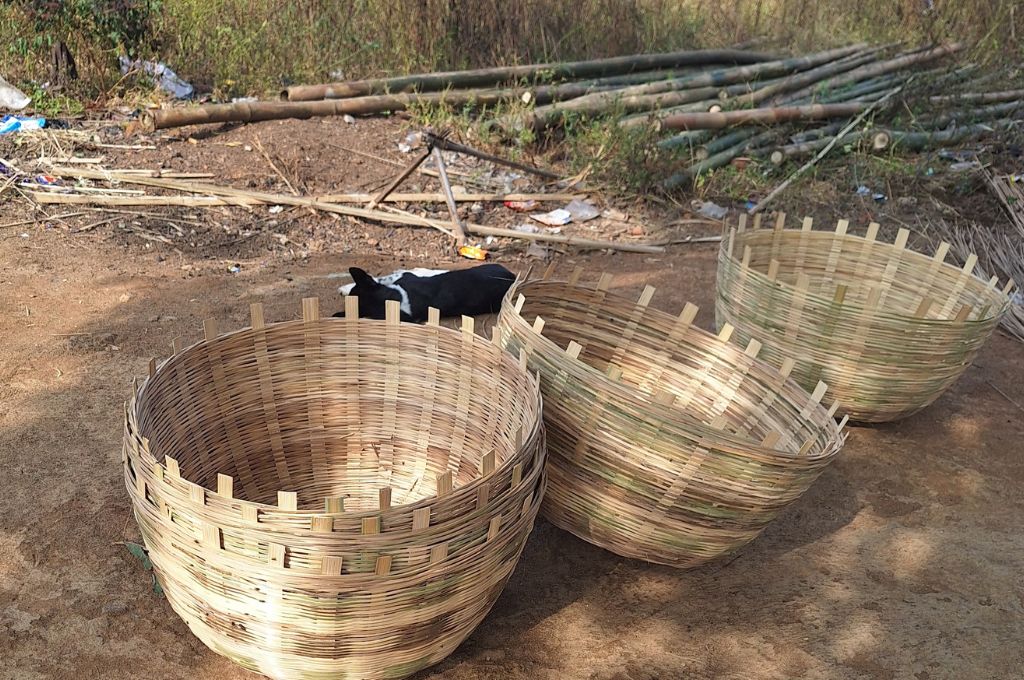No forest, no farm: Forced migration among Parhaiyas

“I have known the art of making soop (rice sieve) since childhood. I learned it from my mother,” says Maniya,* a woman from the Parhaiya community in Serak village, Jharkhand. Selling rice sieves made out of bamboo collected from the forests is one of the primary sources of income for the Parhaiya community. However, this is slowly changing.
The Parhaiyas are one of the nine particularly vulnerable tribal groups (PVTGs) of Jharkhand. ‘Parhaiya’ translates to ‘the burner of the forest’—the community has traditionally relied on livelihoods centred around forest resources such as slash-and-burn agriculture, collecting minor forest produce (MFP), hunting, fishing, and making and selling bamboo-based handicraft products.
However, with regulatory constraints put forth by the forest department and increasing incidences of forest fires in the region, Maniya and her community’s access to resources such as firewood and bamboo has reduced drastically over a period of time. Collection of bamboo from the forests is restricted to winter months as the saplings develop root systems during the monsoon, and there are increasing occurrences of forest fires during the summer. “Due to unavailability of raw material, the income from sales of rice sieves and baskets is insufficient to meet household expenses nowadays,” Maniya explains.
Farming here is often done on tiny plots of infertile land using solely household labour. However, with delayed monsoons and declining groundwater, this is also becoming a challenge. “We don’t have water to drink during summers; how do we farm?” asks Shanti,* another woman from the community. The average number of consecutive dry days for Jharkhand is also surging. Shanti and her husband could not cultivate vegetables or crops in the kharif (when seeds are sown at the onset of monsoon) and rabi (when seeds are sown during early winter) seasons.
Seasonal migration, thus, is the only livelihood alternative for the community who, in their search for work, have often entered into exploitative labour contracts. Suresh, Maniya’s husband, works at a brick kiln in Banaras for six to seven months every year. The job is often gruelling and results in crippling back pain, fever, and joint aches as he is required to work for approximately 12 hours under the sun.
Stuck in the quagmire of climate change, distress migration, and shrinking access to commons, the community is finding it increasingly difficult to lead a life of dignity.
*Names changed to maintain confidentiality.
Padmini Ramesh and Sangeeth Sugathan work on poverty alleviation and livelihoods.
—
Know more: Read this article to learn more about alternative livelihoods in West Bengal.
Do more: Connect with the authors at padmini.r.97@gmail.com and sangeeth.sugathan1@gmail.com to know more about and support their work.



